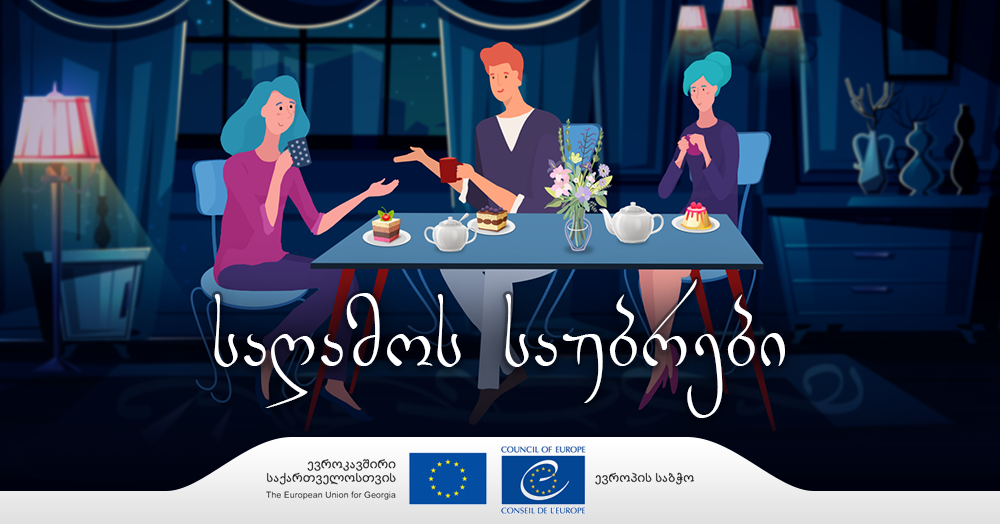Evening Talks, a series of online discussions aiming at contributing to the quality of improvement of the justice system in Georgia concluded with its final session held on 18 April. This series created an online platform promoting different policy papers, guidelines, and documents developed by the Council of Europe for the member states in the field of the Judiciary.
During the last sesion, the lawyer of the European Court of Human Rights (the Court) Giorgi Badashvili will focus on the novelties at the Court, current reforms and its main directions. The latest cases relevant to Georgian reality were discussed as well.
The talks were hosted by the judge of the Supreme Court of Georgia, a nominated member at CCJE and CEPEJ Nino Bakakuri. Talks were broadcasted live through the official Facebook page of the Council of Europe Office in Georgia giving the possibility to the public to ask and get the topic-related answers live.
Already discussed topics include:
- Artificial intelligence and judiciary
- CEPEJ Evaluation Report and Georgia
- CCJE Recent Opinion on the Judicial Associations
- CEPEJ Report on media and Judiciary
- CEPEJ Guideline on “Breaking up judges’ isolation”
- Drive changes through Cyber justice
- CEPEJ - Guardian of Justice
This activity was organised within the framework of the project "Support to the Judicial Reform in Georgia", funded by the European Union and the Council of Europe and implemented by the Council of Europe in their Partnership for Good Governance II.
Access the playlist with previous Evening talks sessions on Facebook held in Georgian





